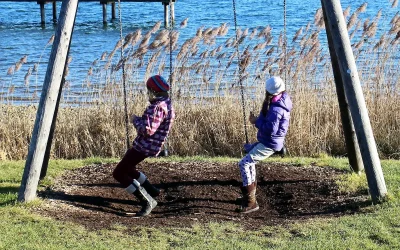Is laziness about being contrary, or slothful, or overwhelmed? Is it about relaxing?
What IS it about?
Here’s some important information about laziness, along with questions for kids and for parents to consider regarding possible causes, and potential impact.
FOR KIDS
“I’m up, I’m dressed. What more do you want?”
~ Anon
Are you lazy?
Or maybe you’re tired? Bored? Defiant? Shy? Or, you just enjoy being calm?
However, if you think you might be lazy, it makes sense to think about your inactivity. That is, why it occurs, and what may (or may not) happen as a result.
The following points (and questions to ask yourself) can further inform your thoughts:
- Laziness can happen repeatedly, for long or short intervals, and at various times of day. (When am I lazy?)
- Kids who are very busy with assorted programs can benefit immensely from opportunities to unwind and conserve energy. (How busy am I?)
- Summer, holidays, and weekends often invite down-time—which can be welcome in an increasingly bustling world. Winter can induce a hibernating vibe, whereas hot weather elicits a slow pace. (What “seasonal” laziness applies to me?)
- Laziness can be impactful. It can affect learning, productivity, and feelings, and also relationships, such as with family, friends, and team-mates. (How does my laziness affect me—and others?)
- Resting or daydreaming may appear to be indicators of laziness. Nevertheless, the brain is always whirring. (In what ways am I lazy on the outside but not on the inside?)
- Laziness may be a prelude to action (like a lull before a storm). Or it can be a chance to re-energize, problem-solve, or generate creative ideas. (How can my laziness enable me?)
FOR PARENTS: NEXT STEPS
So, is your child’s laziness okay, or is it unhealthy?
Help kids appreciate that sometimes laziness is alright—even a welcome respite—but they should recognize that laziness has a downside, too. It can hinder achievements, short-circuit creativity, fuel self-indulgence, and hamper connectivity, all of which can be problematic and worrisome.
Here are three questions for parents to ponder:
1. Is my child’s laziness excessive? Consider when it occurs, what triggers it, and how to lessen it—bit by bit. Most importantly, if laziness takes the form of not talking to anyone, being extremely resistant, or staying in bed for long periods of time, then it’s wise to seek help. That kind of laziness might be related to concerns that warrant counseling or medical attention.
2. Does my child’s laziness revitalize or calm them? If so, it may be advantageous, purposeful, and lead to strengthened intent and productivity. You and they may be content with the status quo. Moderation is key.
3. Does my child want to do something about their laziness? If they seem satisfied, and the laziness is not bothering anyone, they may think it’s fine. However, if nothing restorative or advantageous is happening as a result of laziness, or if it’s prolonged, it could be prudent to address it. Check out resources on motivation, procrastination, purpose, and time management. Help kids build up the “desire they require” to fortify their productivity, well-being, fulfillment, and peace of mind.
LAST WORDS
Tips for Kids:
When laziness occurs—reflect upon it. Find meaningful incentives. Be creative, and resolve to seek and discover exciting things to do!
Tips for Parents:
When you perceive laziness—assess the situation, and possible consequences. Determine ways to work together with your child to facilitate positive outcomes.








